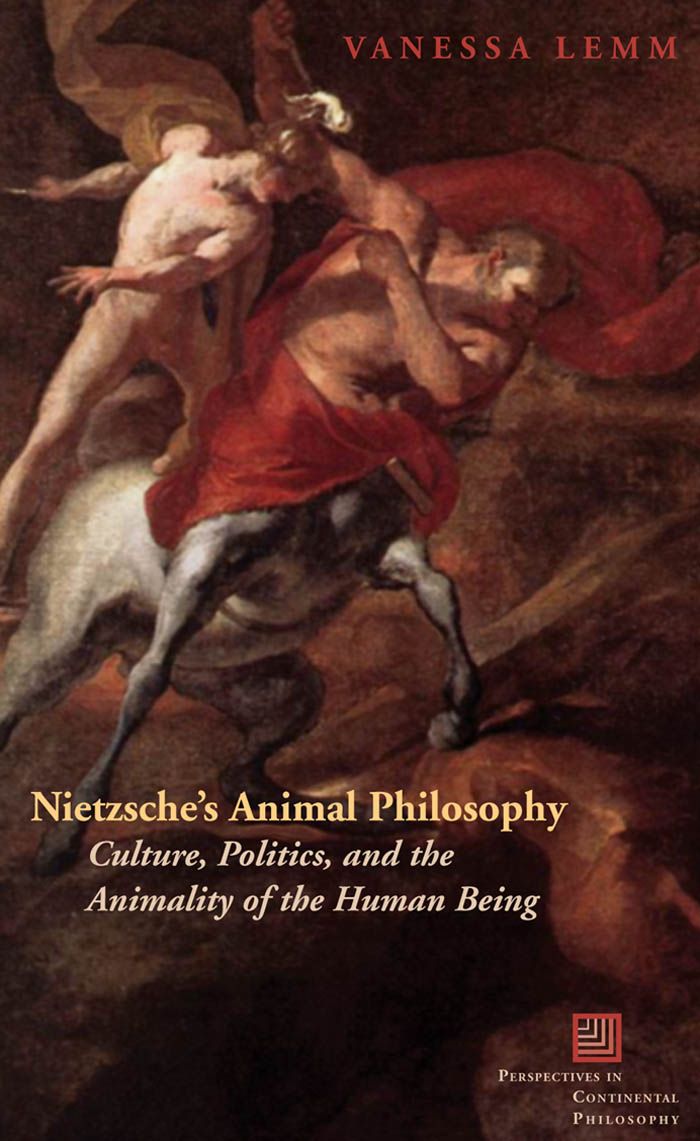Nietzsche's Animal Philosophy
Culture, Politics, and the Animality of the Human Being

This book can be opened with

This book explores the significance of human animality in the philosophy of Friedrich Nietzsche and provides the first systematic treatment of the animal theme in Nietzsche's corpus as a whole Lemm argues that the animal is neither a random theme nor a metaphorical device in Nietzsche's thought. Instead, it stands at the center of his renewal of the practice and meaning of philosophy itself. Lemm provides an original contribution to on-going debates on the essence of humanism and its future.
At the center of this new interpretation stands Nietzsche's thesis that animal life and its potential for truth, history, and morality depends on a continuous antagonism between forgetfulness (animality) and memory (humanity). This relationship accounts for the emergence of humanity out of animality as a function of the antagonism between civilization and culture.
By taking the antagonism of culture and civilization to be fundamental for Nietzsche's conception of humanity and its becoming, Lemm gives a new entry point into the political significance of Nietzsche's thought. The opposition between civilization and culture allows for the possibility that politics is more than a set of civilizational techniques that seek to manipulate, dominate, and exclude the animality of the human animal. By seeing the deep-seated connections of politics with culture, Nietzsche orients politics beyond the domination over life and, instead, offers the animality of the human being a positive, creative role in the organization of life. Lemm's book presents Nietzsche as the thinker of an emancipatory and affirmative biopolitics.
This book will appeal not only to readers interested in Nietzsche, but also to anyone interested in the theme of the animal in philosophy, literature, cultural studies and the arts, as well as those interested in the relation between biological life and politics.
[For] anyone who is brave enough to open up and embrace the question of animality in the face of contemporary problems.——The Agonist
Lemm's important contribution lies in complicating Nietzsche's political theory, in distinguishing between a politics of civilization and of culture.——Perspectives on Politics
. . . Convincingly reveals the positive political core of Nietzsche's work and successfully moves it beyond his own epch, highlighting its relevance for the twenty-first century.——Foucault Studies
Lemm offers a fresh and ultimately persuasive interpretation of several of Nietzsche's core concepts, including culture, civilization, morality, freedom, and truth . . . Simply put, this is a must-read for Nietzsche scholars. Highly recommended.——Choice
Vanessa Lemm’s Nietzsche’s Animal Philosophy is an important contribution to the debate about the animality of human life. Deeply scholarly and rigorous, Lemm’s book points to the centrality of the animal in Nietzsche and will be an important resource for those seeking to understand the breadth and passion of Nietzsche’s writings on life, art, and creativity.——Theory & Event
[Lemm] consolidates her reputation as one of Nietzsche's most original, attentive, and lively readers.——Journal of Nietzsche Studies

